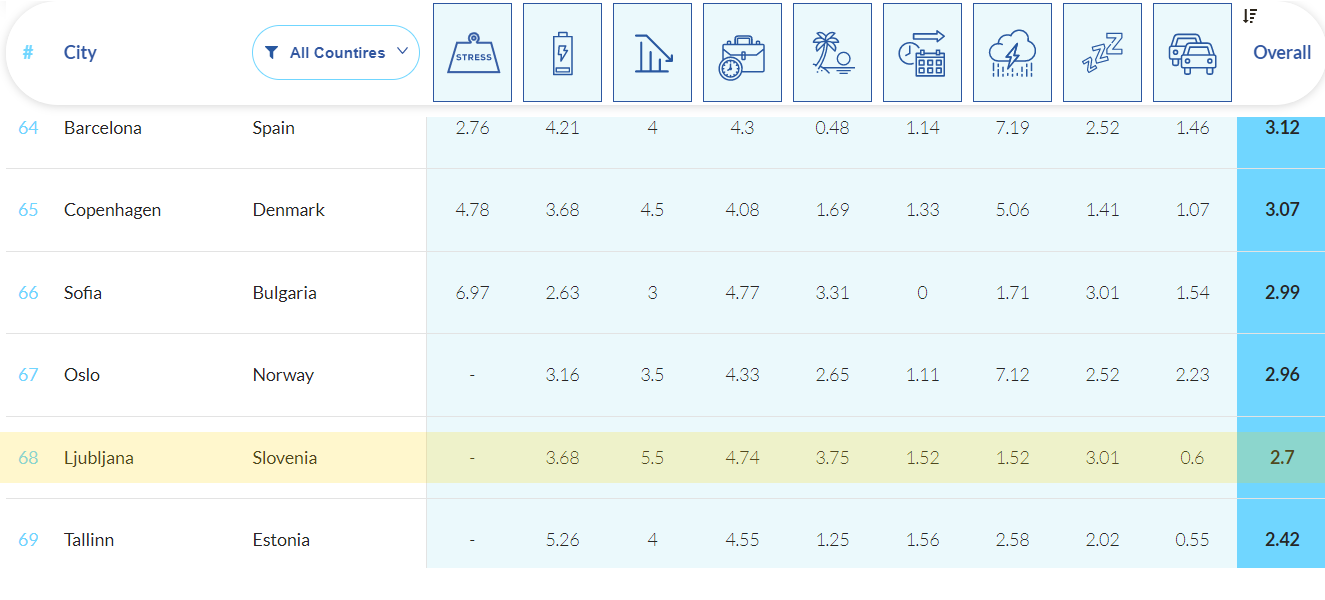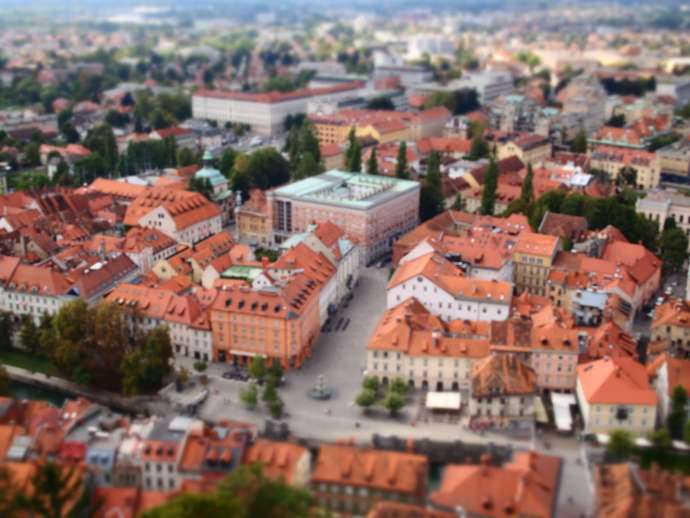How does Ljubljana rate compared to other cities with regard to burnout and general stress among those in employment? A website that sells mattresses, Savvy Sleeper, recently commissioned an analysis that looked at nine different factors – work-related stress, employee presenteeism, lack of motivation at work, annual work hours, vacation time, working more than 48 hours a week, the prevalence of mental health disorders and substance abuse, getting less than 7 hours of sleep, and time spent commuting – and used data from sources such as Glassdoor, UBS and the International Labour Organization – to rank 69 cities, from those with the highest to lowest levels of burnout.
For anyone struggling in Šiška, exhausted in Vič, or feeling underemployed in Trnovo the results may come as a surprise, along with the shocking realisation that things could be worse. For others, who skip to work with a song in their hearts and sleep soundly at night, they’ll confirm that the city is one that manages to balance development with a slower, more manageable pace than in many other capitals, with life still lived on a human scale.

Screenshot: Savvy Sleeper
More specifically, out of 69 cities Ljubljana is said to have the second lowest level of burnout, with the related text on the best three being as follows:
The lowest scoring global city for work burnout is Tallinn, Estonia. The city offers a generous amount of vacation, with an average of 29.1 paid days off. Plus, just 5.6% of the population work more than 48 hours a week.
Ljubljana, Slovenia (68th) has the second-lowest risk of employee burnout. Just 5.5% of Slovenia’s population works more than 48 hours a week. While commuters spend only 27.93 minutes in traffic to and from work, compared to the average of all analysed cities, 40.10 minutes.
Oslo, Norway (67th) has been reported to be one of the happiest places in the world according to the World Happiness Report. Work-life balance is taken very seriously in Norway and just 4.2% of the entire population works 48 hours or more a week.
However, within this it should be noted that Ljubljana has relatively high levels of lack of motivation at work (#11), and that no data was obtained for work-related stress from Glassdoor for the city.
Looking at the end of the scale, the top 10 most stressed cities are said to be Tokyo, Mumbai, Seoul, Istanbul, Manila, Jakarta, Hanoi, Taipei, Los Angeles, and Buenos Aires, with seven of these being in Asia. Looking at the EU, the most stressed cities are London (at #14), Rome (#21) and Athens (29).
It’s an interesting list to consider as you think about the trade offs between living in a 24-hour cosmopolitan metropolis and a smaller city in a relative backwater, and the different opportunities they provide for development and peace of mind. You can see the full list, and more details, here.







